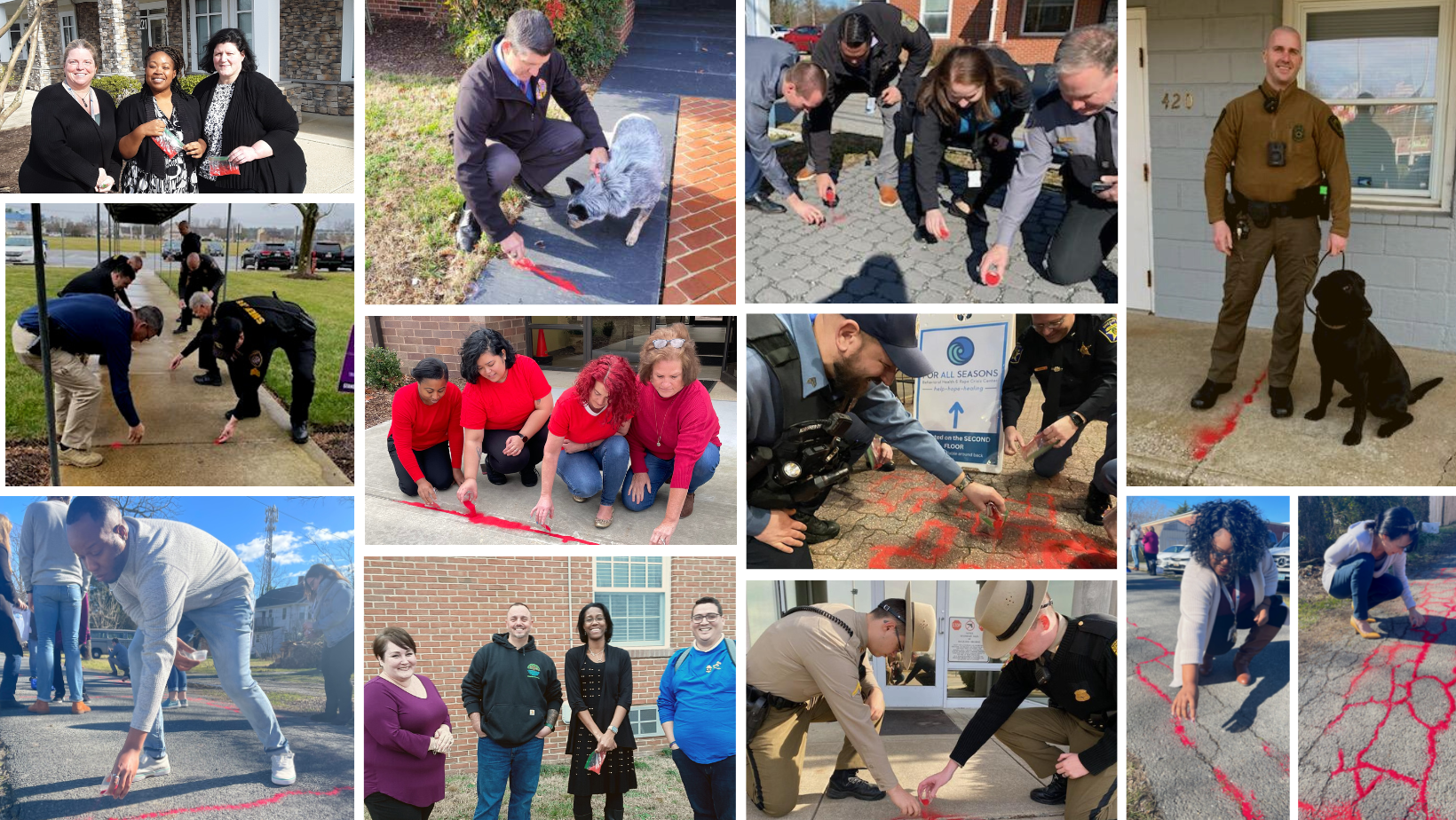In the News

For All Seasons Promotes National Human Trafficking Prevention Month – The Red Sand Project
Maryland has one of the highest rates of “domestic” human trafficking in the nation. In Maryland, human trafficking affects all parts of the State. Human trafficking involves the use of force, fraud, or coercion to obtain some type of labor or commercial sex act. According to the Governor’s Office of Crime Prevention, Youth, and Victim Services, three major airports, inexpensive bus transportation, train service along the east coast, large sporting events, and disposable income makes Maryland an attractive destination for traffickers. Over the last three years, there have been sex trafficking arrests across the Eastern Shore including in Easton, Cambridge, Federalsburg, Denton, and Salisbury. Again this year, For All Seasons is raising public awareness of this global issue, as well as sharing its impact locally, during the month of January which is National Human Trafficking Prevention Month.
According to the U.S. Department of State, there are estimated to be more than 27.6 million people — adults and children — subjected to human trafficking around the world, including in the United States. Traffickers often take advantage of the instability caused by natural disasters, conflict, or a pandemic to exploit others. During the COVID-19 pandemic, traffickers are continuing to perpetrate the crime, finding ways to innovate and capitalize on the chaos. According to President Biden’s “National Action Plan to Combat Human Trafficking” report, human traffickers can be relatives, friends, politically connected individuals in their country of origin, individuals operating alone, those in loosely affiliated groups or as part of gangs, or transnational criminal organizations. They control their victims by physically isolating and/or emotionally manipulating them, offering false promises of love, threatening a victim with various forms of harm, and controlling a victim’s substance use.
To help Maryland deal with its human trafficking problem, the state convened the Maryland Human Trafficking Task Force (MHTTF) in 2007 as the state’s primary anti-trafficking organization working to combat trafficking through prevention, protection of victims, prosecution of trafficking, and partnerships. The MHTTF is a multidisciplinary team of agencies and local organizations committed to a victim-centered approach in the fight against human trafficking in Maryland.
“As a member of the MHTTF, we partner with member organizations to help provide resources for the survivor to meet their needs at the moment – everything from mental health resources to clothes, food, gift cards, and rent payments to,” states Kristy Mirando, Director of Victim Services at For All Seasons, who serves on the MHTTF.
“What we are realizing is that anyone can be trafficked regardless of class, gender, education, or age, though traffickers tend to target marginalized and vulnerable individuals. Such vulnerabilities may include individuals who have experienced sexual violence and trauma in the past, homelessness, involvement in the child welfare and juvenile justice systems, those who have experienced substance abuse themselves or within their families, immigrants, LGBTQ youth, developmentally or intellectually delayed individuals, and many others.”
Mirando adds that trafficking occurs in rural, suburban, and urban communities in every state across the country. Maryland State Police also remind parents of online safety and to be aware of online scams involving the sexual extortion of minors. Investigators find online predators often give the impression they are romantically interested in the minor being targeted, to gain their trust. As the chats progress, the suspect user will request sexually illicit photographs of the minor and might even send photographs back to the minor in return in exchange for money, typically in the form of gift cards and prepaid credit card numbers that are readily available at most stores. The suspects often advise minors that if money is not sent, the illicit photographs of the minor will be sent to family, and friends, and posted online accompanied by distasteful comments about the minor. Parents and caregivers are encouraged to talk to their children regularly about risks of sexual exploitation and to monitor their children’s use of all digital devices including laptops, tablets, desktop computers, gaming consoles, and smartphones.
To help bring awareness about human trafficking, For All Seasons is sponsoring its Red Sand Project. Participants pour red sand into sidewalk cracks and use the time to start a discussion about the causes and effects of human trafficking and exploitation. The red sand represents the victims of human trafficking who have slipped through the cracks, yet may still be hiding in plain sight.
Red flags of a human trafficking situation can be homeless youth, truancy, chronic runaways, appearing scared or nervous, tattoos or branding, withdrawing from family, school, or church, and always appearing tired. A victim who calls For All Seasons’ hotline gets help with understanding their options and resources, and creating a safety plan if that is what they are comfortable doing at the time.
Red sand packets are available through the end of January. If you are interested in participating, contact Jonathan Qvarnstrom at jqvarnstrom@forallseasonsinc.org. For further information about human trafficking, visit www.eshttf.org or http://www.mdhumantrafficking.org/. The National Human Trafficking Hotline is 1-888-373-7888.
For crisis support on the Mid-Shore, contact For All Seasons’ 24-Hour Hotlines: 410.820.5600 for English or 410.829.6143 for Spanish or text in English and Spanish.
